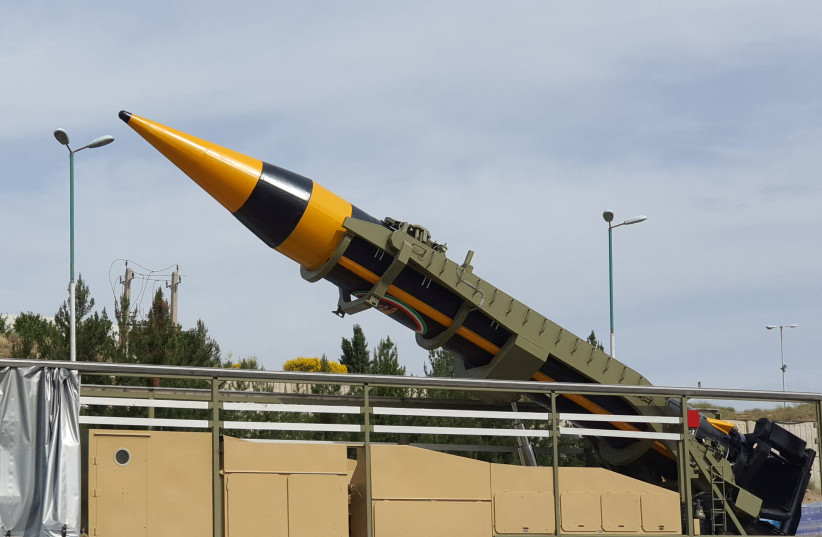The European parties to the Iran nuclear deal – the UK, France, and Germany – plan to maintain sanctions on Tehran’s missiles, which are set to expire in October.
The 2015 Joint Comprehensive Plan of Action limited Iran’s nuclear program, in exchange for the gradual lifting of sanctions, known as “sunset clauses.” October’s “sunset” is meant to be on the UN Security Council sanctions that call on Iran not to develop ballistic missiles and ban the sale or transfer of advanced drones and their components to or from Iran.
Iran has violated the sanctions set to expire in October by developing ballistic missiles and exporting drones to Russia, which it has used against Ukraine.
The Iran nuclear deal
The Iran nuclear deal includes a “snapback” option, by which, if Tehran violates the JCPOA, any party to it could inform the UN Security Council that all pre-2015 sanctions on Iran will be brought back.
It remains unclear if the plan, first reported in The Guardian, is to use “snapback,” or for the E3, as the European states involved are called, to have sanctions of their own on Iran, without the UN, focused specifically on the missile issue, without bringing back all sanctions.

The UK Foreign Office did not confirm or deny the report, nor provide further details.
However, last month, the Foreign Office did note that Iran’s repeated development and testing of ballistic missiles violates the UN Security Council resolution banning them from doing so.
In addition, International Atomic Energy Agency reporting has highlighted the great extent of Iran’s non-compliance with its JCPOA commitments.
Western states have been hesitant to discuss sanctions, while Washington and Tehran held indirect talks for an informal agreement that would have Iran freeze its nuclear program in exchange for some sanctions relief.
The deal, which the Biden administration has continually denied despite confirmation from diplomatic sources in multiple countries to many media outlets, appeared close to being finalized in recent weeks, but the E3’s preparation to continue sanctions in October could be a sign to the contrary.
Asked about the possibility of a return to the JCPOA, the UK’s then-ambassador to Israel Neil Wigan said last month that “the core objective is that Iran should not acquire a nuclear weapon. We have to make sure that doesn’t happen in any new deal.”
